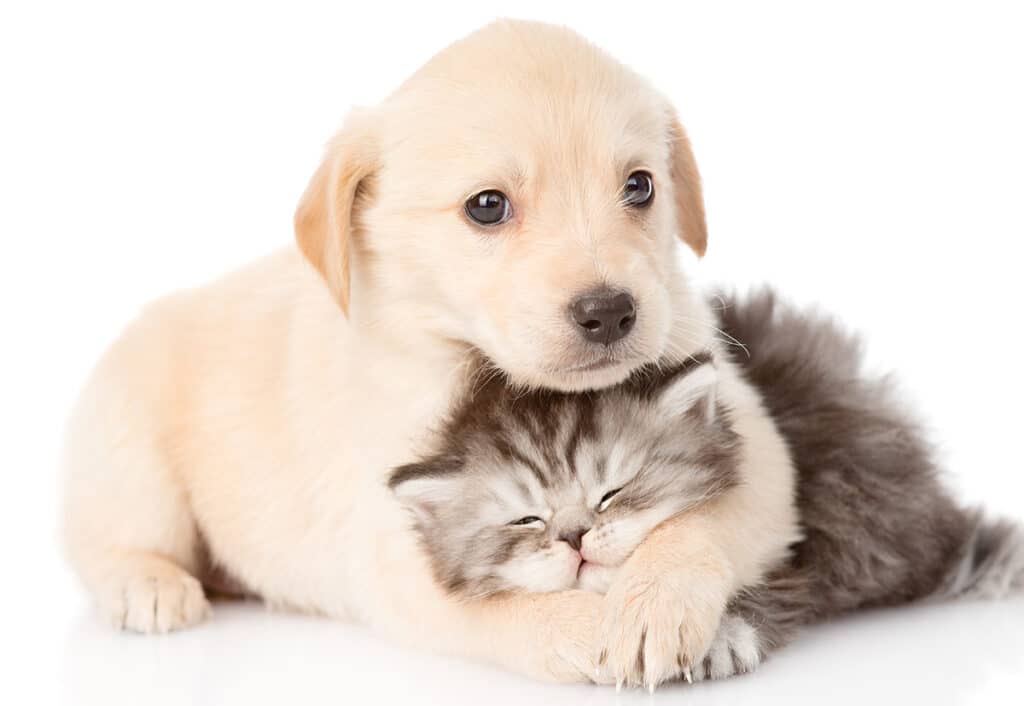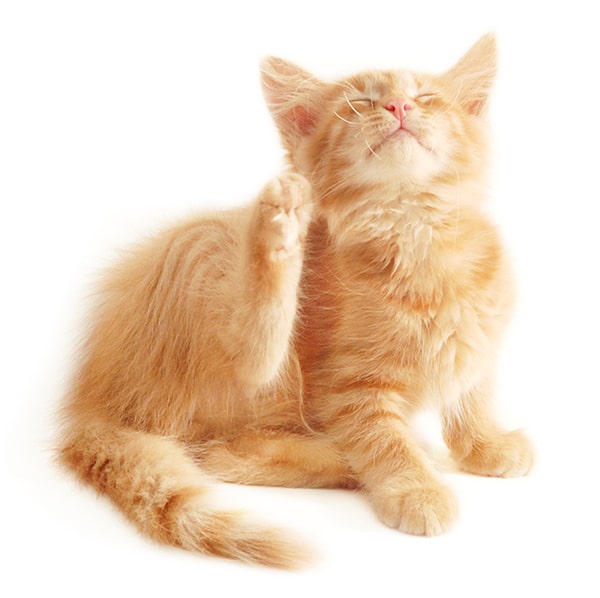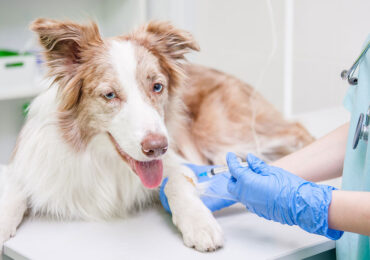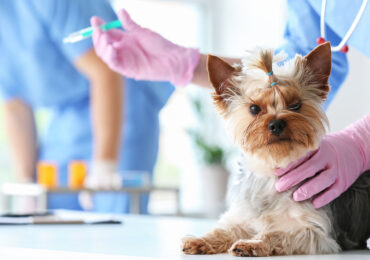You’re getting your very first pet, and it’s beneficial to both you and your new pet to keep some key points in mind as your puppy or kitten grows. Read on to find out more about the different life stages of pets.
Dogs – from Puppy to Adult Dog
At birth, puppies don’t have most of their senses yet – they can’t hear or see, and they don’t regulate their body temperature or eliminate without help. At about two to three weeks puppy first opens his eyes, and he gradually begins to develop his other senses after that. Before you even meet your new pup, your breeder should have already begun introducing smells and noises to him in the first two to three months, which will help him to become socialized as he interacts with littermates, people, and other pets. This is a crucial time in a puppy’s development, and he will depend on you to continue the socialization regimen as well as take on a primary role in his training when you bring him home.

At what age is your puppy considered an adult? This depends on the type of dog he is. Smaller breeds tend to reach adulthood earlier than large breeds, but in general, the puppy stage can last anywhere from six to 18 months. During this stage, it is especially important to take the time to train him so that proper dog etiquette becomes second nature. Make sure he gets his vaccination shots starting around this time too, and to keep him boosted on schedule as he matures. Depending on your dog’s breed, he reaches senior age at six to ten years, so be prepared to give him some extra TLC at that stage.

Cats – from Kitten to Adult Cat
Kitten is only two weeks old when she begins to develop her senses of sight and smell, and about a month old when she picks up many of the familiar behaviors we associate with cats, such as grooming and exploring. In another week she has found her way to the litter box and is well on her way to expressing her independence. Be mindful of this if you take a notion to pick up a kitten for snuggles, as it may take some time and training for her to appreciate it in the way you intend it.
Your cat will go through several stages as she matures. She is a kitten up to six months of age, by which time she should have developed good behavioral habits. Around this age, you’ll want to ask your veterinarian about the various vaccination options available for her. Cats up to two years old are called “junior” cats and reach prime adulthood around three to six years. When your cat is between the ages of seven and ten years old, she’s mature, and at 11-14, she’s considered a senior cat. It’s not uncommon for cats to live even longer than that, reaching the venerable geriatric stage beginning at age 15. Remember to pay special attention to your cat’s health at her most vulnerable stages, and she should live a long and happy life.
Here at Grand Valley Animal Hospital, we know you want the best care for your pet, for every age and stage. We’re here to help with answers to all your pet care questions. Reach us at (701)757-3500.



